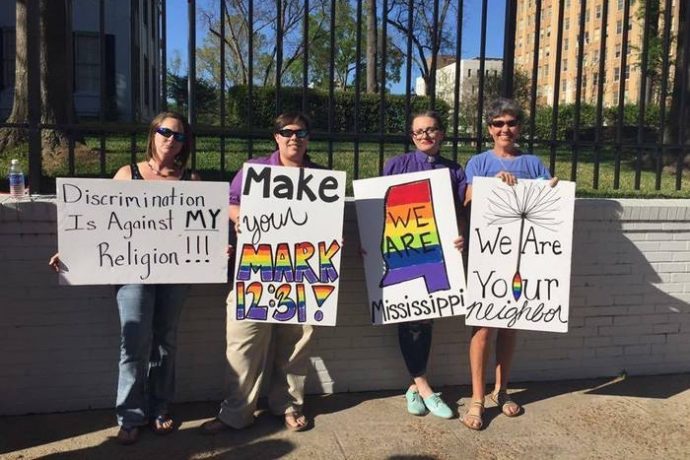A week after Mississippi’s Attorney General said he didn’t think it wise to appeal a federal judge’s last-minute injunction of HB 1523 (his words: “The churchgoing public was duped into believing that HB 1523 protected religious freedoms”), Governor Phil Bryant followed through on his long-standing promise to do so no matter what.
In a district court filing, Governor Bryant said he didn’t think Judge Carlton Reeves’ ruling would hold because a) none of the plaintiffs suing over the law had standing to do so and b) HB 1523 is totally constitutional.
According to Judge Reeves, the law, which would have shielded individuals holding three specific beliefs from the consequences of anti-discrimination laws, violated both the Fourteenth and First Amendments. Not only did it create a separate, substandard regime for LGBT individuals, Reeves wrote, but it violated the Establishment Clause by singling out three specific religious beliefs for protection.
Governor Bryant’s response? The carve-outs in HB 1523 (for individuals who don’t approve of same sex-marriage, sex before marriage, or a gender identity not determined by sex at birth) are no different than federal laws protecting pacifists from military conscription.
But pacifists can choose not to become soldiers. Soldiers can’t, once enlisted, choose not to go to war. State clerks, who would be allowed to deny marriage licenses to same-sex couples under HB 1523, are not drafted or required to choose a government job over one in the private sector. You cannot serve as an agent of the state but only act on its behalf when it suits you.
Additionally, being a pacifist doesn’t cause harm to others. Discriminating against LGBT individuals does. I wouldn’t equate an individual’s disapproval of same-sex marriage (which, put crudely, concerns what someone else does with his or her body) with conscientious objection (which concerns what an individual does with his or her own body).
The governor’s analogy would only hold up if Mississippi were forcing couples into same-sex marriage. A better analogy for the absurdity of HB 1523 would be a law that allowed me to refuse to serve members of the military, or refuse to sign off on a veteran’s adoption papers or marriage license because I’m a conscientious objector.





